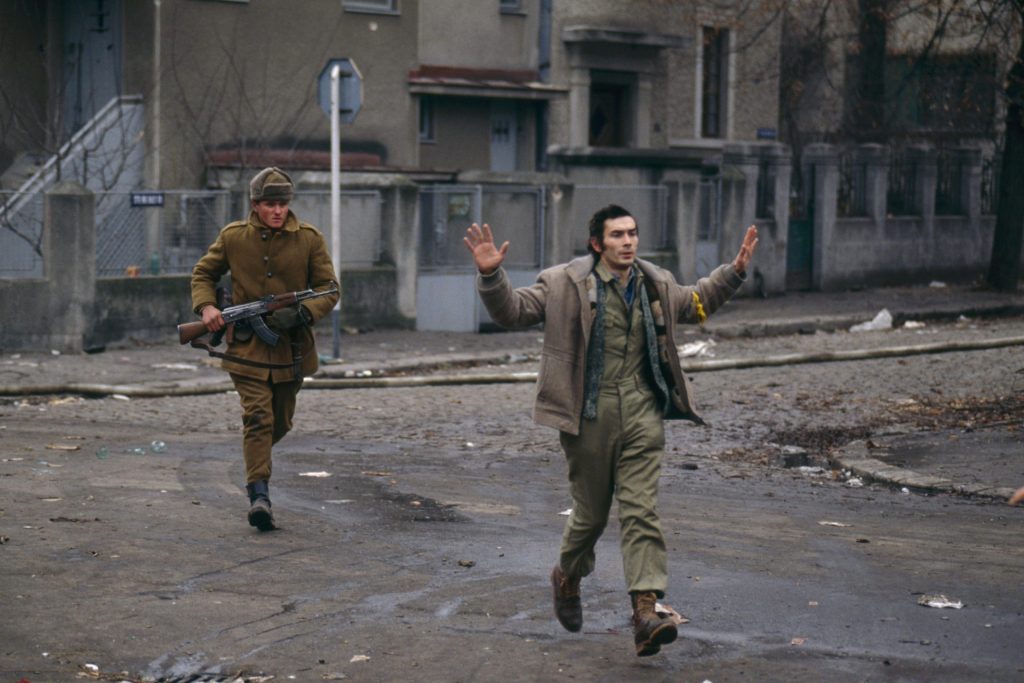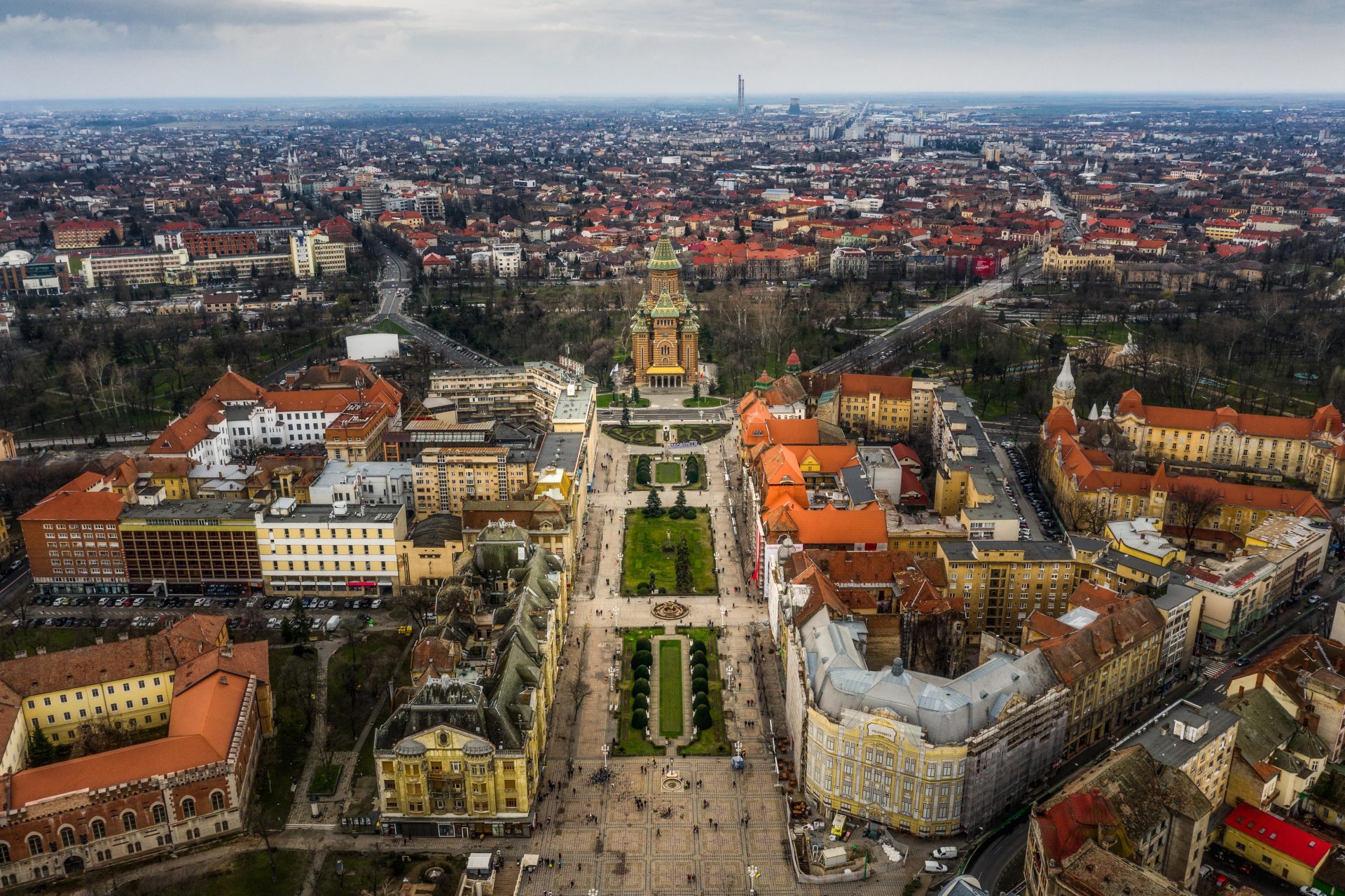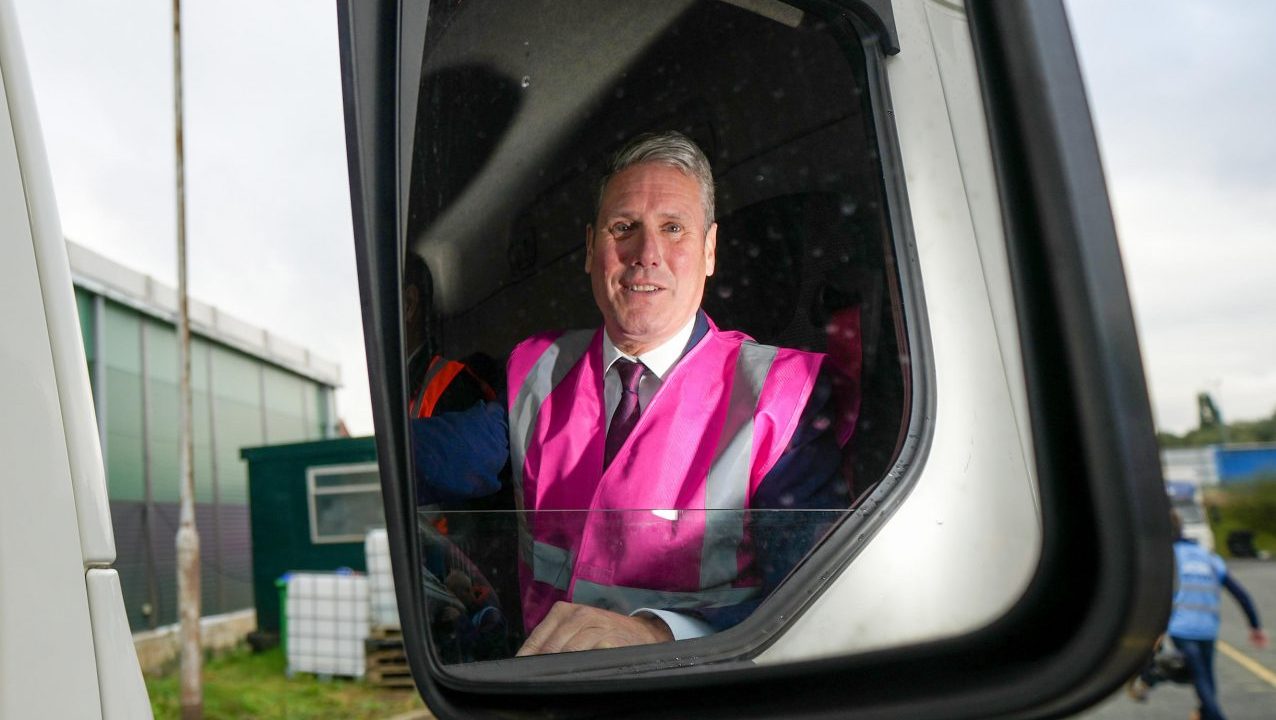Dominic Fritz laughs easily. Other times he tears his hair out. To be the German-born mayor of the revolutionary city of Timisoara, in western Romania, certainly has its funny side.
Timisoara is both the country’s high-tech hub, boasting an array of cutting-edge companies with billiondollar revenues, and a quaint, cobble-stoned place dozing in the late 19th century. It was one of the first places in Europe to introduce electric streetlights.
Fritz explains that he could switch his phone to aeroplane mode but would rather not because his wife is due to give birth at any moment. It’s an apt metaphor for a city brimming with possibilities, which seems permanently in labour.
Timisoara, home to more than 300,000 people, is Romania’s most promising candidate for the “silicon city” label, a hub for top IT companies from all over the world. The communist legacy, oddly, helped – in the country as a whole, not just one city. Kids without access to computers built their own in their parents’ garden sheds.
A generation of hackers was born, with the tools to either terrorise trans-national corporations or defend them from attack.
“Due to its high-tech environment in both the academic and business landscape, Timisoara was the obvious choice,” Dirk Lappe, chief technology officer at Porsche Engineering, said in June, while announcing the establishment of a new research and development centre in the city, to complement the existing centre in Cluj.
Back in the city hall, Dominic Fritz finds himself caught between a paralytic past and a promising future. “The breakdown in public administration and politics in Romania and other countries in the region is because the only way to solve a problem is if you know somebody. It’s not the institution that solves your problem, but knowing somebody that can circumvent the institution. And so I’m trying to reverse that.”
He inherited a city administration run on paper and corruption, with secretaries lugging piles of documents up and down stairs from overheated printers – where some staff had paid officials for the dubious joy of working there.
He is slowly but surely replacing the behemoth with a smart, transparent city.
“We are working on three threads,” says Valentin Muresan, a personal advisor to the mayor on digital transformation. “The interface with the public. The processes behind that interface, to make the city hall productive, and give the results swiftly back to the citizens. And thirdly, the big picture: sensors capable of capturing data in real time, providing an analysis of possible problems and the solutions you can act on.”
The Vox Technology Park perches awkwardly beside Highway 6, one of the radials pointing north west out of Timisoara, like a glass butterfly, or a silicon chip in a plate of potato chips. Forty companies operate from here, 90% of them in technology.
The lift swoops me straight to managing director Mark Oancea’s office on the 10th floor.
“There’s a lot of space to expand here,” he smiles, looking out over the fertile plains of the Banat region – with six capital cities within a 500km radius: Vienna, Budapest, Belgrade, Zagreb, Bratislava and Bucharest.
He paints a picture of high-tech firms moving their engineering and research and development businesses close to where their manufacturing bases used to be. He drops a few names, recent additions to his technology park. Kromberg & Schubert, the German supplier of complex wiring systems for the global automotive industry. Atos, the French communications and cybersecurity giant with an annual revenue of $11billion. And the R & D centre of the Indian firm Tech Mahindra with revenues of $4.9billion.
In February this year, Zetta University, a branch of Salem University in West Virginia, started teaching IT courses here, complementing the supply of tech graduates from the long-established West University and the Polytechnic University in Timisoara.
A German acquaintance recently asked Oancea why the best brains in his organisation came from Romania. “We don’t have the best education here or the best technology. But 50 years of communism forced you to find your own solutions, because the state was so authoritarian, so closed, or so weak in parts… you couldn’t wait for them,” he answered. “You had to think outside the box.”
The system itself, he suggests, bred resistance and innovation. “Most Romanians, faced with a regulation that you have to go from A to B, will never take it. Instead they’ll start wondering, how am I going to get through C?”
There’s a dark, as well as a bright side to Romanian innovation. Some of the most infamous hackers and cybercriminals of recent years come from here. The 2018 HBO series Hackerville zigzags between Frankfurt and Timisoara as Romanian tech princess Lisa Metz travels home on the trail of a mysterious network of hackers, and finds more than she bargained for.

The classic “hackerville” in Romania was actually Râmnicu Vâlcea, a dozy-looking town nestling at the southern foot of the Carpathian mountains. “Most of the kids I was at school with drive big cars now and live in villas behind high walls,” says Mircea P, who grew up there. “We built computers in our garages and started scamming.”
He draws a sharp line between “white hackers”, serving the public good, and “dark hackers”, who rip them off.
The classic scam in his youth was to photoshop pictures of desirable properties, offer them on the market for a knockdown price, and ask for the immediate payment of a small deposit, a few hundred euros. “Some people went to jail for a year or two, but they made – and kept – millions.”
Suspected Romanian mafia chief Florian Tudor, known as El Tiburon (The Shark) is in jail in Mexico City, fighting extradition to Romania where he is accused of fraud, murder and extortion. Mexican investigators allege that he ran a network of ATMs, designed to extract money from unsuspecting clients in tourist destinations.
Cyber-security firms also attract those willing to use their coding and cracking skills on the “white” side. In September, Bitdefender, a Romanian cyberfirm based in Bucharest with offices in many countries, released a “universal decryptor” to help victims of cyber attacks by the REvil gang avoid paying ransom money. “Our decryptors have saved organisations more than $100million in ransoms, helped rescue critical data and kept organisations around the world open for business,” said Bogdan Botezatu, director of threat research, recently.
Back in Timisoara, none of the plugs work on the slow, dusty train home to Budapest and it’s running half an hour late. But there’s a new post on Facebook from the mayor’s office, a photo – and a short text: “In times of danger a vulnerable wonder… welcome, our little Timisoara girl! What a responsibility for us to make you a city, a country, a Europe where you can reach your potential.”
By the time I get home, it has 20,000 likes.



